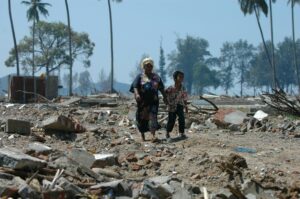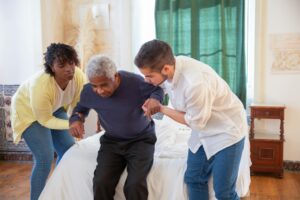What happens when no one is coming? If fire departments are shuttered, police are politicized or absent, and ambulances don’t arrive, communities must prepare to protect and care for one another. This section outlines practical ways to survive and support others when formal systems fail.
Fire, Safety & Medical Preparedness
- Fire Readiness: Keep extinguishers, fire blankets, and water on hand. Remove brush near homes. Train with neighbors for joint fire response.
- Community-Led Safety: Build trust networks. Focus on de-escalation and protection of the vulnerable. Avoid replicating state surveillance or punitive models.
- Basic Medical Skills: Learn wound care, CPR, and trauma management. Stock essential supplies and medicines. Build a shared emergency plan with neighbors.
- Know Local Risks: Be aware of fire zones, chemical plants, high-risk intersections, and flood plains. Plan routes and communication backups.
Resources for Preparedness & Mutual Aid
- Mutual Aid Disaster Relief – Community-based emergency resilience
- Prepper Library – First Aid & Emergency Medical PDFs
- Civilian Medical – Practical trauma skills for ordinary people
- Resilience.org – Guides on community-scale preparedness
This content is free to use, adapt, and share.
Knowledge and information should be open—please spread them far and wide.A few things to keep in mind:
- All of my work comes with absolutely no warranty, expressed or implied. However…
- It will almost certainly work until it breaks,
though I must admit it may never work or be useful—and that would be sad.- If/when it breaks, you can keep all the pieces.
- As for what you don’t like, it’s yours to do with as you will.
- If you find my materials helpful, both you and I will be happy (at least for a while).
- My advice is worth every penny you paid for it!
Full disclosure:
I use various AI systems to assist in developing my content.
If you’re curious about how I use them, feel free to check out:
The Revolutionary Impact of AI on Genealogy and Historical Research.


